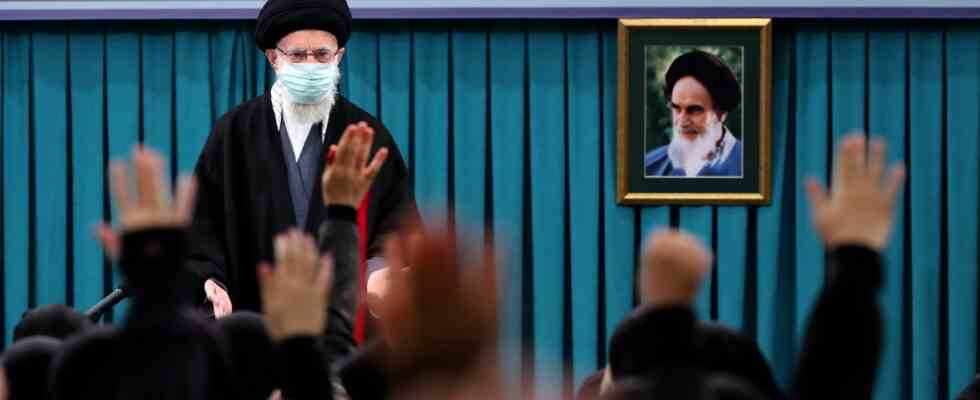Status: 04.01.2023 4:48 p.m
Ayatollah Khamenei has said that Iranian women’s “loose” headscarves are not necessarily anti-revolution and anti-religious. But they are not “right” either. The protests against the regime continue.
Ayatollah Ali Khamenei, Iran’s head of state, has described loose-fitting headscarves as not “contrary to religion and revolution”. “Poorly or loosely fitting headscarves are not right. But it doesn’t mean that we should look at them contrary to religion and revolution,” the religious leader was quoted as saying by the Iranian news agency IRNA. Khamenei met with Iranian women on Wednesday.
The nationwide protests in Iran, which have been going on for months, are directed, among other things, against clothing regulations such as the headscarf requirement and against the Islamic regime as a whole. More and more women can now be seen in public without a headscarf. The morals police, who monitored the dress code, have almost completely disappeared from the streets – but the headscarf requirement is to be further controlled, for example, by video surveillance.
Hundreds dead in protests
The protests were triggered by the death of Mahsa Amini. The Kurdish woman was arrested in mid-September for allegedly violating the dress code and died in the custody of the vice squad. As a result, the largest protests in years ignited in Iran.
Human rights activists estimate that more than 500 people have been killed in the protests and more than 19,000 have been arrested. Again and again the demonstrators chanted “Death to the dictator!” – meaning Khamenei, who has held the highest office in the state for more than 30 years. In total, Iran says it has imposed 13 death sentences on protesters so far, and two people have already been executed.
Actress Alidoosti released again
The well-known actress Taraneh Alidoosti had also protested against this. On Instagram, she denounced the execution of protester Mohsen Shekari and was subsequently arrested. This in turn triggered protests in the country’s cultural scene – even artists who had previously held back from criticizing the regime made public statements. According to local media reports, Alidoosti has now been released on bail after almost three weeks in prison.
The Basij militia, an auxiliary force of the Revolutionary Guards, has repeatedly been involved in the violence against demonstrators. According to the Tasnim news agency, one of their commanders was shot dead in Tehran, and another person was injured. He is said to have been responsible for a Basij unit in the south of the capital and was killed in front of his house.

